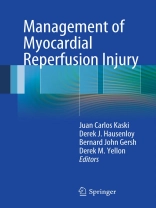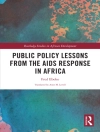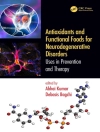Much has been written about reperfusion injury in the past decade but unfortunately the information has been generally presented in the form of original specialist papers and little if any integral publication exists on the topic, summarising and analysing the clinical impact of the condition and its management. The pathophysiology and molecular mechanisms of reperfusion injury are complex and, regarding diagnosis, individual diagnostic techniques have been proposed but without a proper assessment of the relative values of these methods. A publication dealing with integral diagnostic strategies would be welcome by the managing physician. Management of the condition is also problematic, as strategies that appear to work in the experimental models do not translate into beneficial interventions in patients. There is a need for these issues to be addressed and discussed in a monographic fashion. Management of Myocardial Reperfusion Injury will tackle these issues in a modern and systematic way and the information will be delivered in a fashion that will be appealing to the reader.
Tabla de materias
Preface.- Introduction.- Myocardial reperfusion injury: The clinical importance and magnitude of the problem, JC Kaski and G Ambrosio.- Section I. Myocardial reperfusion injury – Pathophysiology and molecular mechanisms.- The ‘no-reflow phenomenon’ leading to myocardial injury and dysfunction- Consequences of reperfusion injury: Pathophysiology and molecular basis, H M Piper.- The coronary microcirculation expert’s view, A Pries.- The pathologist’s view, R Virmani.- The interventionist’s view.- Commonly asked questions.- Pathophysiology and molecular mechanisms – Established facts and future research avenues – An integrated view, D Yellon.- Section II. Diagnosis.- The electrocardiogram.- Biomarkers.- Angiography.- Echocardiography.- MRI.- SPECT.- PET, P Camici.- Commonly asked questions.- An integrated view on diagnostic strategies – Identifying salvageable myocardium.- Diagnostic algorithms.- Section III. Management – Currently available tools and future perspectives.- An integrated view on management – What is effective and what is not.- Discrepancies between results of treatment in experimental models and patients. Management algorithms, B Gersh.- Catheter lab options, M Marzilli.- Myocardial protection – Metabolic issues, WC Stanley.- Myocardial protection – Preconditioning.- New pharmacological options.- Assessment of treatment efficacy.- Commonly asked questions.- Future perspectives, JC Kaski, D Yellon and B Gersch.












